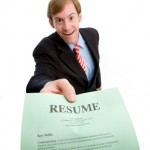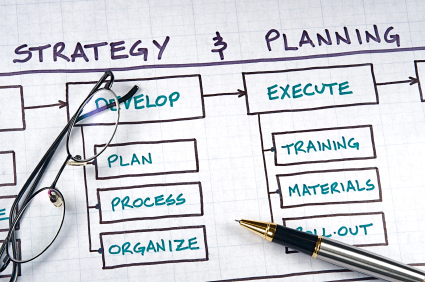
Job rejection is an inevitable and discouraging part of the job search process–we’ve all been there. Even so, each rejection is a lesson learned; with this in mind, you can maintain the confidence necessary to move forward to your ideal job. When dealing with job rejection, the two most important things to do are to ask for feedback from your interviewer and keep in mind that being passed over for a job isn’t necessarily within your control.
Getting Feedback
Although job rejection might cause you to feel disappointed in your efforts, you can still gain something positive from each experience. Ask hiring managers what you can do to improve your chances in the future – some might be more than willing to give you some pointers if they felt you were a viable candidate who simply lost out to someone more qualified.
When you speak to the hiring manager, you can ask whether there are other opportunities within the company that might be a better fit for you. Even if there are no other open positions at that company, it doesn’t hurt to let them know of your interest in working for them. Your perseverance might pay off by landing you an even better job later on.
Your interviewer is not your only valuable source of information; you can also talk with your friends and family. Some people are reluctant to do this because they feel that speaking about job rejection means admitting failure – as mentioned, this isn’t the case. Your friends and family can provide valuable guidance to steer you in the right direction. The more people you open up to, the more potential you will have to get interview tips or even job leads.
What You Can Do in the Future
There are a few ways that you can improve your chances of being called back after a job interview. Most importantly, remember that job rejection is not a measure of your worth, so don’t take it personally. The job market is always competitive, even when the economy is thriving. Your confidence in yourself, or the lack thereof, will show, so always maintain a positive outlook in your job search.
After each interview, step back from the experience and think of the things that you could have done differently. Many people become nervous at job interviews and as a result, they slip up in one way or another. Whether you stutter or don’t make enough eye contact, recognize those mistakes so that you don’t make them again.
In your future interviews, send a thank-you note to the interviewer as soon as possible. Thank him or her for speaking with you, and say that you look forward to hearing about the position. It’s assumed that job applicants are searching in more than one place for a job at any one time, so following up shows that you are genuinely interested in the job.
Dealing with job rejection can be tough, but it is something that everyone encounters at one point or another. Seeking feedback and realizing that some factors are beyond your control will help you to move forward in your job search and find an ideal fit for you.
 With the advent of online employment services such as monster.com, careerbuilder.com and job-hunt.com, more people than ever can be applying for fewer and fewer jobs. How can you create a resume that will stand out in this sea of hopefuls? Follow this list of “musts” to ensure your resume stands out.
With the advent of online employment services such as monster.com, careerbuilder.com and job-hunt.com, more people than ever can be applying for fewer and fewer jobs. How can you create a resume that will stand out in this sea of hopefuls? Follow this list of “musts” to ensure your resume stands out.
Summarize your career achievements and experiences at the top of the resume. Human resource people receive sometimes hundreds of resumes to fill one position. Don’t make them hunt for the meat of your work. Create a snappy, one paragraph summary that captures the essence of your strengths and experience to be the first thing that is read. Make it creative and enticing, luring them to want to know more about you. Follow it up with a keyword, bulleted list. This will catch the employer’s eye, as well as, a keyword scanning machine.
Be timely. In this very competitive job market, potential employers want to know your latest and greatest experiences and strengths. While they will be looking at our college degrees and educational experiences, they will want to know what was your last greatest achievement, and how it relates to what they are looking for. Keeping everything fresh and timely will catch their eyes far more than listing all the things you did ten years ago that helped get you to where you are today.
Include all your experiences, even if they weren’t job related. Sometimes employers look for a well-rounded prospect, someone who has taken time to volunteer with a local nonprofit, or community organizing for your neighborhood. All relevant experience will show them your potentials for doing great work for them. This works especially well for entry-level jobs!
Put the most important information that is most relevant to the work first. Don’t make them hunt for what they are looking for. Human resource people don’t have time to read through every resume they get. Help them by showing them first and foremost what you have that they want. Even if it was done a while ago, you can create a “highlights” box on the front page and add your accomplishment there.
Be positive in your language. You don’t want to overdo, but you can certainly put a much more positive spin areas where you lack certain skills or have not completed your education. Instead of, “no experience” say “willing to learn anything needed to get the job done.” Or, focus on what your expertise is in.
Personalize every cover letter. There is nothing colder or less attractive to an HR director than getting a stale, canned letter. Don’t be afraid to personalize it with your own character. Instead of, “I would be willing to work extra hours,” say, “I have never been able to change the earth’s orbit, but I would try for you.” Have fun, be personable and research the company’s mission statement to align your letter with it.
Edit, edit, edit. There is nothing worse than sending out a resume or cover letter with typos or grammatical errors. When in doubt, ask a second set of eyes to look it over and comment.

It’s an old adage, and it’s true: there are no second chances when it comes to first impressions. Your interviewer will make on-the-spot judgments about your capabilities within the first few minutes of meeting you, based almost entirely on your personal appearance. Negative initial impressions will be difficult if not impossible to reverse during the interview, even if it goes well. The clothes you wear to the interview say so much to your potential employer: how well you’ll fit in, if you pay attention to little details, and whether you understand professionalism, to name a few.
Many of these recommendations can be summed up as common sense (hopefully)– wear clean, tidy looking clothes, dress professionally and conservative, go for understated over bold. The right clothes might not guarantee you a spot with the company, but the wrong clothes almost certainly will disqualify you. The way you dress for your interview should send a loud message that you will fit in with the company culture and that you understand what it means to be a team player. When planning your interview outfit (preferably days in advance in case repairs need to be made or items professionally cleaned), reference this checklist to ensure that you are dressed for success.
Yes, we know all of this, but lately I’ve had questions from clients that make me think a refresher course is needed.
- Go with a simple, well fitted suit every time. For men, wear a dark suit with a light shirt and silk tie; for women, a suit or a dress and jacket combination work. Even if the corporate culture is laid back, you still need to dress for the interview as if you really are going to an interview.
- Consider wearing blue, preferably navy. To many, blue symbolizes calm, trustworthiness, and confidence. Otherwise, stick to the business neutrals: black, gray, beige, brown.
- Dark dress shoes are best. Ideally, men should wear black lace ups with dark socks. Women should wear low heeled, close toed pumps. Ladies, this is not the place to try out your new stilettos.
- Wear something you’ve worn before and you know you look great in. You want to exude confidence and know you’ll be comfortable.
- Go easy on perfume, cologne, or aftershave. It can seem obnoxious and in a worst case scenario (your interviewer is sensitive or allergic) they can derail the interview altogether. You don’t want to leave your scent on the person’s hand when you leave. Ick.
- Trimmed, styled hair and groomed nails. If you can, get a professional cut before the interview. A fresh cut will also make you feel more confident and put together. Men, make sure your 5 O’clock shadow isn’t showing.
- Go easy on the jewelry. Less is more.
- Pay attention to detail. Everything should be clean, hemmed, ironed, and look well put together.
- Bring a light briefcase or small portfolio; make sure it is in good condition and does not clash with the rest of your outfit.
- Lose the gum, cell phone, MP3 player, and other distracting items. Do not bring a drink, even coffee. Nothing says,”Please don’t hire me” like slurping your non-fat, Caramel Macchiato while texting your BFF. Keep pockets empty to avoid the sound of jingling keys and change; this will also keep pockets from unattractively bulging.
- Cover tattoos and take out piercings, even if you are already aware that workplace policy allows them.
Stick with these simple tips and you’ll do just fine.

With unemployment rates still looking dismal, it’s important to make sure you’re putting your best foot forward. One easy way to do this is to learn what the biggest mistakes job seekers make are, and how you can avoid them. Paying this extra attention to each part of the job seeking process should increase your appeal dramatically.
One of the biggest mistakes made early on is failing to network. It’s important to know that networking isn’t a simple cold and impromptu request for work. It’s building relationships that will be beneficial in the long run, if not the immediate future. Since the majority of jobs aren’t actually listed, networking can be a great gateway into the workforce. And while it’s very important to network, it’s just as important to remain tactful. If you meet or know someone who works for a company you’re interested in, for example, ask them about the hiring process and the work environment; don’t ask them for a reference. Throughout the entire job process you’ll want to be creative. Networking is no exception.
Apart from networking, there are other ways to expand your options. There are the classifieds, of course, but you should also keep in mind that employers often post job listings on their websites. To find these you can go directly to a company’s website or perform a search for the company name and the word job, career, or employment. If the company you’re interested in doesn’t have any listings, consider either mailing or dropping off in person your resume and cover letter.
Resumes are, unsurprisingly, another source of huge mistakes. It’s important that your resume is focused and detailed. People often send out the exact same resume to every posting they see, but this is ineffective. To avoid this mishap take a little time to tailor your resume to each position you’re interested in. Familiarize yourself with the language used in the job listing and on the company’s website and then use it in your resume (and cover letter). This will help convince them that you are familiar with and, maybe, an ideal match for the company. In the very least, it demonstrates you’re applying out of a genuine interest in the position and company, not out of desperation.
Another way to keep your resume focused is to avoid listing broad job responsibilities and activities on your resume. Instead, you want to list specific accomplishments, contexts, and quantities. It’s much more impressive to hear that someone increased profits by 7 percent in a period where competitors all saw a decline than to hear that the same person “helped avoid unnecessary expense.” Objectives, though not necessary, can be a great resume unifier. If you do decide to list an objective, make sure you state how you’ll benefit the company and not vice versa.
The mistakes made during the interview fall into the same category as those made in the resume. Too often people just aren’t specific enough or knowledgeable about the employer they’re applying with. The interview is your chance to drive home the fact that you are the solution to the company’s problem. You should know in advance how you fit in with the company’s future plans and adequately express this in the interview.
Finally, don’t make the mistake of thinking you’re alone in this. There are plenty of resources available. There’s probably at least one support group for jobseekers in your area. These groups can be a great way to network and keep focus. Focus and common sense are, after all, two traits to keep strong during your search.

With the current state of the economy, jobs are a bit more challenging to come by. For this reason, it is more important than ever that you have a properly planned resume. A poorly planned resume can result in missing out an interview, which can be devastating in this market.
If you are an older job seeker, avoid putting certain dates on your resume. There is no reason to tell an employer how old you are, but if you mention on your resume that you obtained your bachelors degree in 1975, the interviewer will be able to do some quick math and determine that you are very likely in your 50s. Employers are legally not allowed to discriminate based upon age, but there would be no way of knowing that an employer had done so if you don’t get the job. Instead of putting dates on your resume, simply put facts. For instance, list what degrees that you have, not when you obtained them.
If you are an older job seeker, only list relevant information on your resume. For example, if you are a computer programmer, no one cares about how great you were with DOS back in the day. Listing all of the years of experience that you have with DOS only gives hints to your age. Instead, highlight all of the relevant experience that you possess. If you are in the field of technology, generally only the last ten to fifteen years of your experience is truly relevant to your employer. Focusing on the achievements that you have had in this time frame makes you look incredibly marketable while avoiding any possibility for age discrimination.
If you are a younger job seeker, play up all of your experience, but leave your high school and college graduation dates off of your resume. There is no reason to give your interviewer a reason to write you off based upon your youth. As with the older job seekers, it is illegal for employers to discriminate against you, but if you don’t get the job, there would be no way for you to know that you were discriminated against. Be certain that you mention all of the clubs that you are or were a part of, especially if you held an office or leadership position within the clubs. Play up any volunteer experience that you have.
All job seekers should focus on listing their skills and accomplishments on their resume as opposed to simply listing their job responsibilities. Being a cashier does not sound like it would have much relevance when applying for a management position, but you can show how being a cashier brought out your abilities to multi-task and manage large sums of money responsibly if you play up those skills on your resume. Be sure to remember that your potential employer wants to see how you, your personality traits, your knowledge, and your skills will enable you to be an asset to their company. If you explain how you will be an asset to the company in your resume, then you are much more likely to grab the attention of recruiters, land an interview, and get a job. Don’t give the HR staff at your dream job any reason to write you off before they’ve even met you.
"Ummm. I didn't need to know that." TMI during interviews.
Career & WorkplaceFeatured ArticlesGuest PostsInterviewingJob SearchProfessional ResumesEditors Note: Kristi Musgrave is a colleague and friend of mine, as well as today’s Guest Blogger. She has oodles of management experience and tells us what it’s like to be on the other side of the desk. Here is some good advice on what NOT to say during an interview.
***************************************************

“You won’t believe this,” he said. “What?” I asked. “We just had a candidate offer to show the hiring manager his gun shot wound.”
Why do people do this? Is it nerves? Do they just not know any better? Why do people share too much or inappropriate information during job interviews?
For the past 10 years I’ve had the opportunity to interview a variety of people and I am still amazed at what they will discuss during an interview. I’ve heard about fights with family members, pets that have died, and mean bosses. I’ve even been asked if I have a prosthetic eye. I don’t by the way.
The purpose of an interview is to assess a candidate’s suitability for a job. A significant part of that assessment will be based on what you say during the interview. Avoid discussing personal information unrelated the position. Discuss your experience, the skills you have that make you well suited for the position, and why you are the best candidate.
Rachel Zupek, a writer for careerbuilder.com offers this advice (you can read the full article here):
Go ahead with the following personal info:
- Goals – It’s OK to talk about what you want in your next assignment and what inspired you to apply for the position.
- Growth – You can and should talk about the things you’ve done up to this point to invest in yourself and your professional development.
- Highlights – Relate the highlights of your greatest professional achievements to date without exaggerating or pontificating.
- Motivations – Talk about what motivates you, excites you, what brought you to that particular industry and what attracted you to that specific employment opportunity.
Do not delve into these personal topics during your interview.
- Lifestyle choices, politics, religion or family plans. Controversial topics may make for stimulating conversation but an attractive employee does not stimulate water-cooler frenzy among the masses.
- Endless name dropping. You can establish that you know some of the same people as the interviewer to build rapport, but don’t think you’re upping the ante by upping the volume.
- Health history. Stay away from your health history mental and otherwise. You’re supposed to be positioning yourself as dependable and reliable; not as a candidate likely to spike the bell curve on benefit-related expenses.
- House problems, nanny drama or rehab trips. Employers don’t want to know much about your life except as it relates to what you’ve done professionally and what you’re likely able to do for them.
- Bosses from hell. Simply put, no prospective boss wants to hear a litany of “boss from hell” stories.
So, unless you’re interviewing for a position as nude model for a sculpting class, discussing your gunshot wound is way too much information for a job interview. Keep your answers professional and focused on your skills and experience as it relates to the position. Good luck at your interview.
++++
Kristi Musgrave is a Senior Validation Engineer with the Validation and Compliance Institute, LLC. She provides cGMP training, validation, and auditing services for the FDA regulated industries. You can reach Kristi at musgrak@gmail.com
